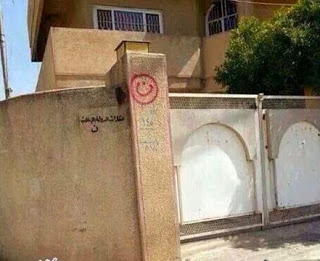| Online: | |
| Visits: | |
| Stories: |

| Story Views | |
| Now: | |
| Last Hour: | |
| Last 24 Hours: | |
| Total: | |
For the First Time in the History of Iraq, Mosul Is Now Empty of Christians
For years, I’ve been telling people that, according to Islamic law, Christians in Muslim-controlled areas are given three choices: convert to Islam, pay the jizya, or die. If a Christian doesn’t like these options, he must leave the Muslim-controlled area.
What happened when a Muslim group recently decided to enforce Sharia in Mosul? Christians were told that they must convert to Islam, pay the jizya, or die. Where did ISIS get the idea that these are the options for Christians? Were they influenced by my videos, articles, and debates? Or do they simply read the same Muslim sources I do, and conclude the exact same things I do?
Christian Home Seized by ISIS BBC—Iraqi Christians are fleeing Mosul after Islamist militants threatened to kill them unless they converted to Islam or paid a “protection tax”.
A statement issued by the Islamic State in Iraq and the Levant (Isis) was read out at the city’s mosques.
It called on Christians to comply by midday on Saturday or face death if they did not leave the northern city.
Isis has control of large parts of Syria and Iraq and said last month it was creating an Islamic caliphate.
The ultimatum cited a historic contract known as “dhimma,” under which non-Muslims in Islamic societies who refuse to convert are offered protection if they pay a fee, called a “jizya”.
“We offer them three choices: Islam; the dhimma contract – involving payment of jizya; if they refuse this they will have nothing but the sword,” the Isis statement said.
“Christian families are on their way to Dohuk and Irbil,” in the neighbouring autonomous region of Kurdistan, Patriarch Louis Sako told the AFP news agency.
“For the first time in the history of Iraq, Mosul is now empty of Christians,” he said.
The patriarch, one of the most senior Christian clerics in Iraq, said militants had been seen tagging Christian houses with the letter N for “Nassarah”, a term used for Christians in the Koran. (Continue Reading.)
Source: http://www.answeringmuslims.com/2014/07/for-first-time-in-history-of-iraq-mosul.html




